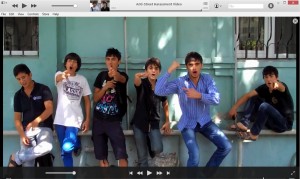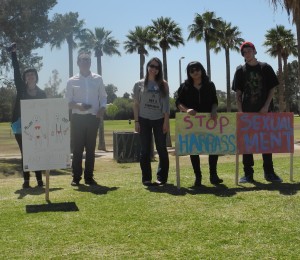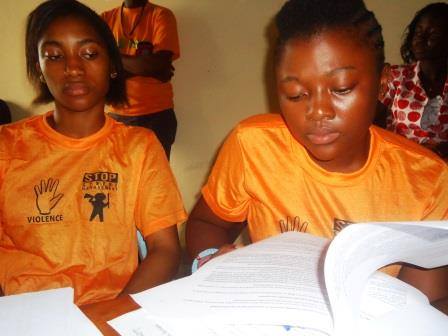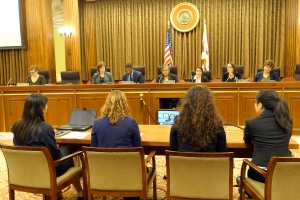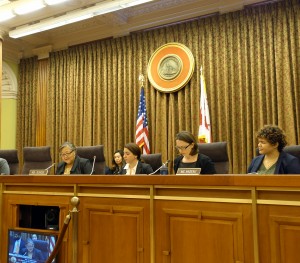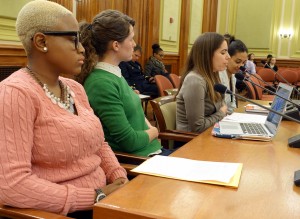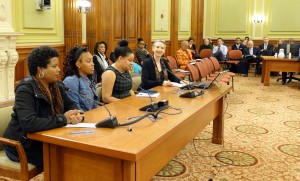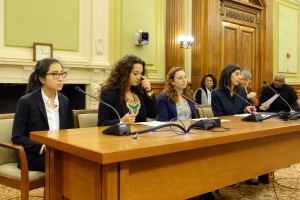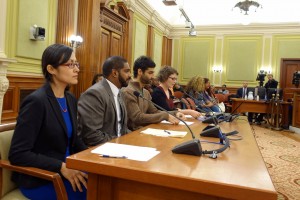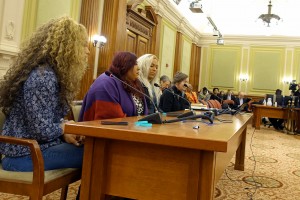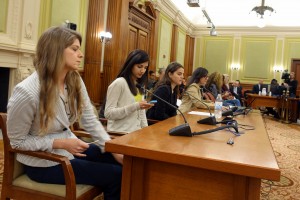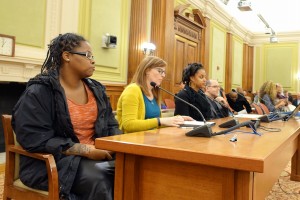Last month, Bluestockings hosted the New York City event for the release of my new book Stop Global Street Harassment: Growing Activism Around the World (Praeger 2015).
I was joined by seven co-presenters who shared their personal street harassment experiences and activism stories. Bisi Alimi is from Nigeria and lives in London; Gaya Branderhorstof Straatintimidatie is from the Netherlands and lives in New York; Alicia Wallace of Hollaback! Bahamas is from the Bahamas and just moved to New York; Ileana Jiménez is a high school teacher in New York City who talks about street harassment with her students; she brought two of her students who shared their stories, Shana and StellaRose; and Brittany Brathwaite is a community organizer for Girls for Gender Equity (GGE) in New York City.
Documentarians Lola Godeau and Sophia Philip videotaped the whole event and kindly let me share it publicly with you all via our YouTube channel. It includes the audience Q&A.

